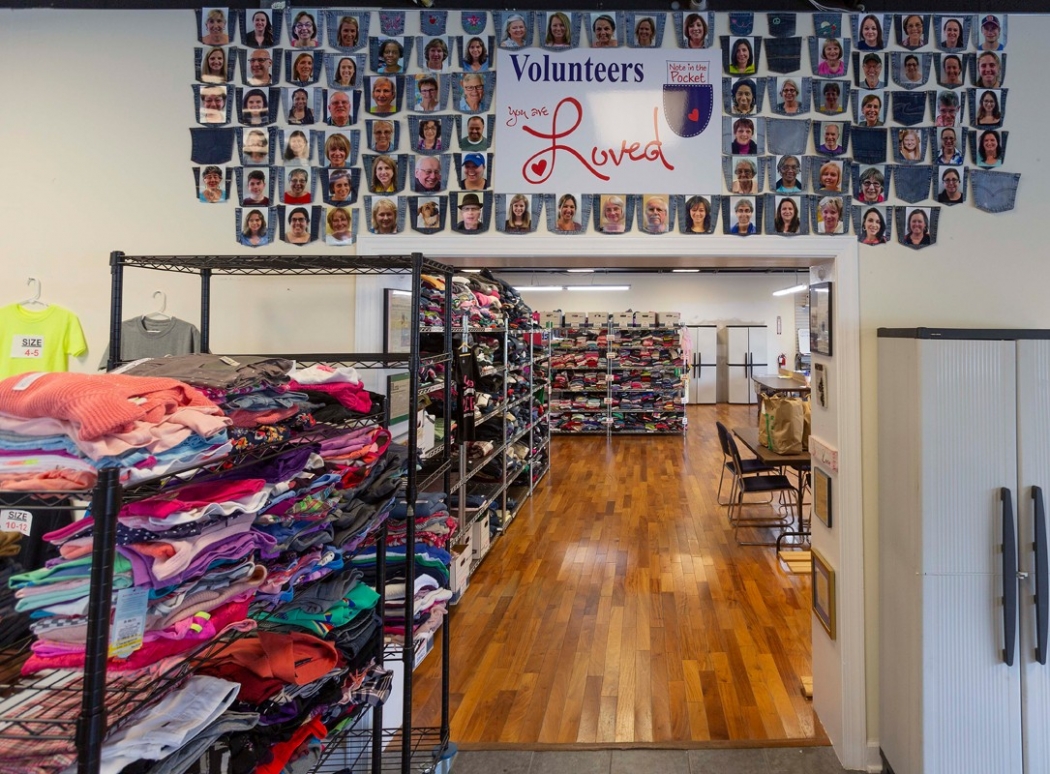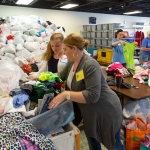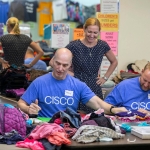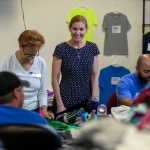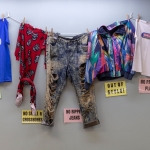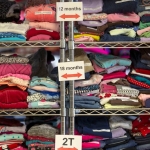One act of kindness is all it takes to make a difference. For Note in the Pocket, a nonprofit that clothes thousands of children in Wake County, one act of kindness is how it all began.
When teacher Margaret Reiland noticed her students needed winter coats, she and her family bought coats for the students to take home. But the next day, they were returned. The students’ families could not believe anyone would give their child a coat. So a note was then placed in the pocket of each coat explaining that it was a gift from the community.
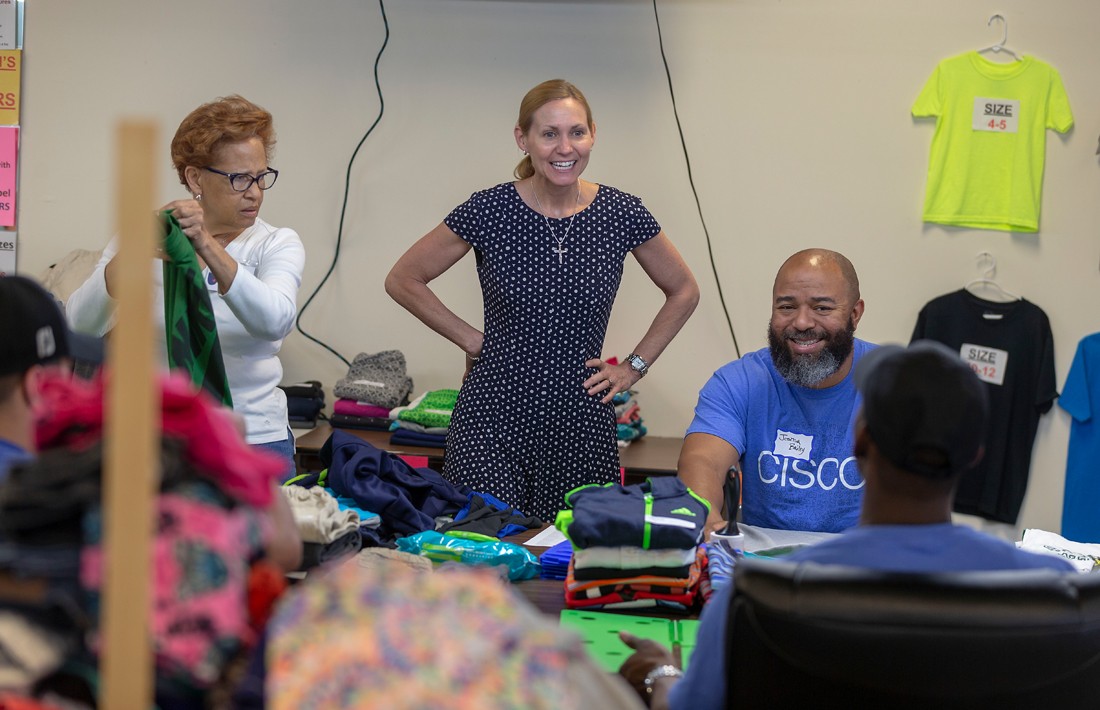
Note in the Pocket Executive Director Dallas Bonavita, center, chats with clothing processing volunteers Kathleen Biar, left, and Joshua Bailey at the organization’s volunteer center in Raleigh.
Now 13 years later, Note in the Pocket is a thriving nonprofit that serves homeless and impoverished schoolchildren in Wake County and strives to eliminate barriers between children and their educational and social growth. Note in the Pocket works to clothe children with dignity and love in collaboration with schools, transitional housing facilities and organizations such as the Salvation Army.
Last year, Note in the Pocket reached 3,500 children and hopes to help an additional 500 individuals every year going forward.
Note in the Pocket’s executive director, Dallas Bonavita, says many of the families that struggle to provide food for their children also have difficulties clothing growing kids. Nearly 50,000 students in the Wake County Public School System qualify for free or reduced lunch. A family of four living on less than $25,000 a year qualifies for free or reduced lunches.
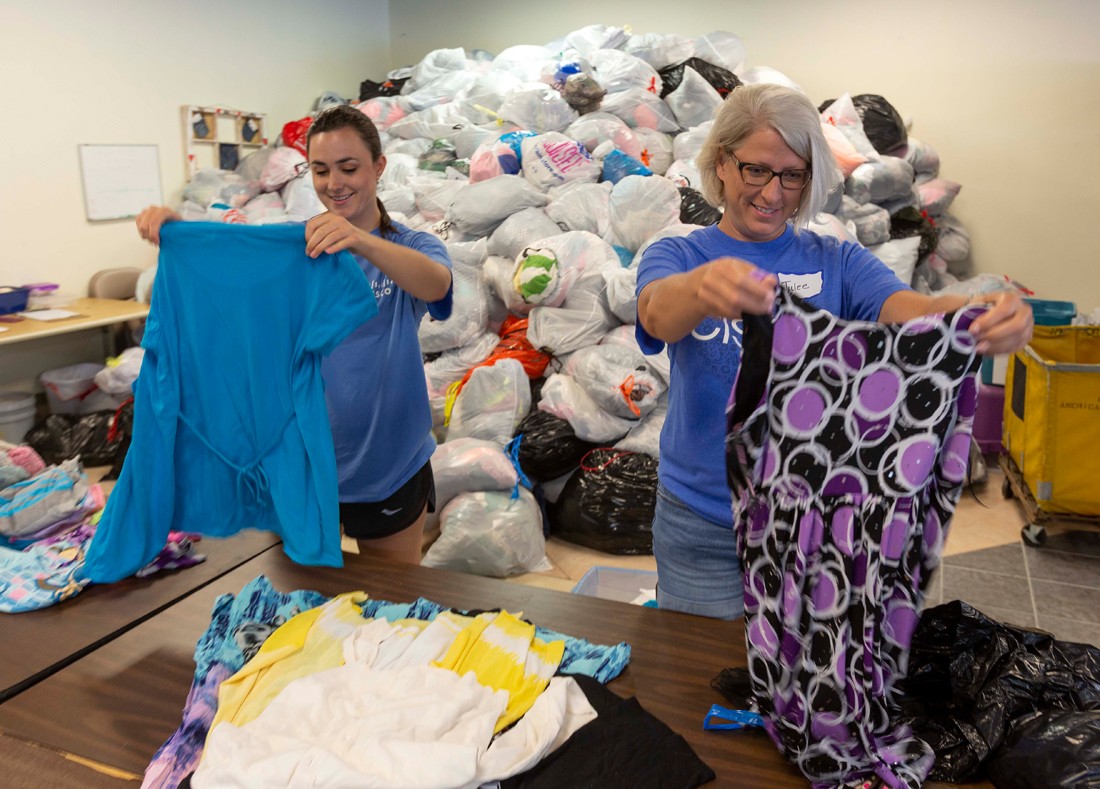
Volunteers from Cisco, Carey Shetterley, left, and Julee Winings, help process, sort and fold clothing donations at Note in the Pocket’s volunteer center in Raleigh.
“They don’t have underwear because their parents can’t afford — when they outgrow what underwear they have — they can’t afford to buy them new underwear,” Bonavita said, “And underwear and socks should not be a luxury.”
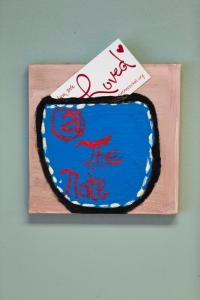
Each donation includes a note in the pocket saying, “You are loved.” The mission of the nonprofit is to clothe children with dignity and love.
School social workers help match students with Note in the Pocket and are the bridge between the families and the organization. Once a student and their family are paired with Note in the Pocket, the student receives a mini-wardrobe, which includes tennis shoes, new socks and underwear, and a variety of tops and bottoms for different weather conditions, as well as any necessary outerwear. If possible, Note in the Pocket will also provide items to other siblings and adults in the family.
For volunteers like Donna Quirk, Note in the Pocket’s immediate impact makes it a unique organization.
“The family doesn’t come to us; we — through the social worker — go to them,” she said. “So we know exactly what they need, and we will provide at least two weeks’ worth of clothes — shirts and pants — that they can mix and match. They can have clothes, and they don’t have to wear the same clothes every day to school.”
Quirk is a team leader at Note in the Pocket’s volunteer center, guiding volunteer groups to sort and fold clothes. She also helps with community outreach, talking to schools in the area about the organization and its importance. Quirk loves to see the kids who come in to volunteer, learn and have fun.
“It’s really great to see the smiles on their faces and their enthusiasm,” Quirk said.
- Donate gently used clothes and shoes.
- Volunteer your time sorting, sizing and packaging clothes.
- Give a financial donation to support Note in the Pocket.
For information, visit noteinthepocket.org.
But Note in the Pocket doesn’t stop at clothing children in the community. It also devotes time to foster student leaders in the community through the teen ambassador program and the teen board. These two programs help teens gain leadership experience and learn how a nonprofit operates.
Vivika Kapoor is a member of the teen board and finds the program rewarding.
“It’s honestly a really great experience, because we not only can help the community through this, but we also learn how entrepreneurship works,” she said. “Students can help the community not just through volunteering, but through creating events.”
Teens in the program are responsible for clothing drives, enlisting volunteers and fundraising.
With the school year starting this month, Note in the Pocket is ramping up for its busiest time of year. To continue making an impact, Note in the Pocket needs support from the community. Clothing donations, volunteers and financial support are all necessary to successfully help children in the area.
“You can do something or you cannot do something; everyone has that choice,” Bonavita said, “And if you choose to do something — then great things can happen.”



